Wyniki wyszukiwania
19 results for query Electromobility
Reports(9)
-
Revenues from ETS auctioning as source of financing for low-emission modernization in Poland
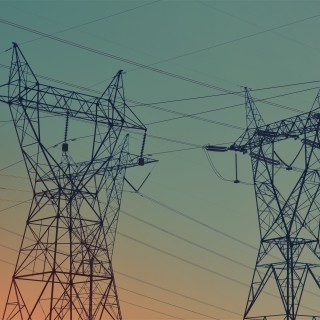
Revenues from auctioning of the national pool of ETS allowances may become the major source of financing for low-emission modernization of energy sector in the coming decade (2021-2030).
8.6.2016 -
COP24 - what next with the climate policy in the EU?

The practical impact of the climate summit agreements on EU and Polish policy is rarely appreciated. Meanwhile, climate policy will be an important point of reference in discussions on integrated national plans, national long-term strategies, or when setting the financial framework for 2021-2027. What are the conclusions of COP24 and, above all, what to expect this year?
22.1.2019 -
Energy Boost for Poland
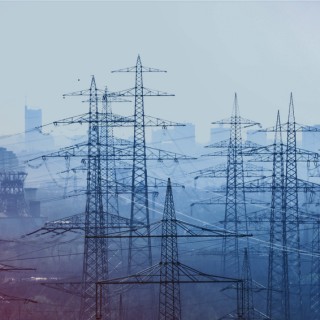
"Energy Boost for Poland" - a package for the economy prepared by the Forum Energii and Polish Confederation Lewiatan. Forum Energii and the Confederation Lewiatan call for the adoption of the "Energy Boost for Poland" package, which aims to mobilise available public and private funds for the Polish energy modernization. The implementation of the "Energy Boost for Poland" will stimulate investments worth over PLN 580 billion, which will create 240 thousand new jobs. Investments in the energy sector should be an element of the strategy for overcoming the crisis caused by the coronavirus pandemic.
11.5.2020 -
Poland: climate neutrality by 2050. Electrification and sector coupling

Electrification sets the direction of inevitable changes in many areas of our lives, including transport and heating. This direction will force a closer cooperation of various sectors of the economy with the future, completely different from today's power system. The integration of three industries — transportation, heat, and power generation— is the new concept for the operation of the entire energy sector. What can it look like in 2050? How will the necessary changes bring Poland closer to the goal of climate neutrality? Forum Energii in the new analysis convinces that a good strategy of sector coupling is a benefit for the Polish economy and society.
19.6.2020 -
How Poland can reach higher GHG emission reduction targets by 2030

At least 55%—this is the reductions target proposed by the European Commission for greenhouse gas emissions (GHG) by 2030. There is no turning back from increasingly demanding climate policy. In its latest analysis, Forum Energii shows how Poland can meet this policy.
4.12.2020 -
The cost of carbon-free buildings and transport: the EU’s plans and Poland's challenges
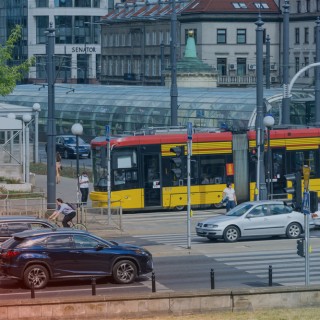
Work on the European Green Deal is accelerating. The main tool to achieve the new targets for reducing greenhouse gas emissions (GHG) in the EU will be the Fit for 55 package. Among its key elements is support for reducing CO2 emissions from buildings and transport. For Poland, this debate will be uncomfortable because over the course of three decades, not only has pollution not decreased but it has increased considerably in transport. This results in terrible air quality in Poland. Catching up, which is necessary for both climate reasons and the modernisation of outdated infrastructure and improvement of air quality, will be a challenge. The introduction of emission charges is intended to help. In its latest study, Forum Energii proposes measures to internalise the external costs of emissions in a way that is smooth, gradual, and socially acceptable.
2.7.2021 -
Visegrad Electromobility | State, perspectives and challenges
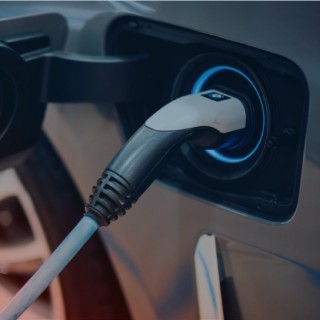
Transport accounts for the largest share of greenhouse gas (GHG) emissions in the European Union and is the only sector in which emissions have been increasing in recent years. The goal of climate neutrality and the increased reduction target for 2030 will not be achievable without a revolution in transport, as confirmed by the ‘Fit for 55’ package published by the European Commission. Given the years of a lack of effective policies in this area in the Visegrad countries, implementing appropriate measures to reduce emissions from transport becomes an urgent challenge. The hope is in electrification, especially of passenger cars.
22.7.2021 -
Distribution grids and electromobility. Planning and development

In recent days, British Prime Minister Boris Johnson announced an acceleration in the development of electromobility. By 2030, 145,000 charging points are to be built in Britain, and from 2022 all new residential and office buildings will have to be equipped with chargers. This is just one of the announcements of the global revolution in transportation. In Poland the pace and character of changes have different dimension. The National Fund for Environmental Protection and Water Management (NFOŚiGW) has just announced a programme of subsidies for the construction of charging stations for electric and hydrogen vehicles as well as PLN 1 billion support for operators to develop distribution networks.
30.11.2021 -
Charge, Set, Go! | Electrifying Urban Transport in Germany and Poland

When more than 40 countries signed the Katowice Partnership for E-Mobility at the 24th session of the Conference of the Parties (COP 24) in Katowice in 2018, it set a milestone for a global approach for the electrification of mobility and the decarbonisation of the transport sector. For Poland and Germany, as the sixth-largest and largest passenger car markets in Europe by sales, it was yet another confirmation of a lived reality. Dedicated friendship and strong long lasting economic cooperation are characteristic for the relationship of both countries and the motto of the framework, Driving Change Together, reflects their joint ambition for the electrification of the transport sector.
31.12.2021
Insights(8)
-
Investment in the energy sector as a remedy for the crisis

After a few weeks of the pandemic in Poland, we know for sure that the virus will infect the economy, even as we finally get rid of it ourselves. We need to act decisively right now. But we also need to think about economic recovery, in which the low-carbon transformation of energy has to take a central place. This is the time for bold decisions, so far postponed. A strategic rebuilding of the sector must be announced today to help society emerge from the crisis and provide long-term benefits.
1.4.2020 -
Energy sector integration | Key to becoming climate-neutral by 2050

The future energy mix will be dominated by renewable energy sources (RES) with zero production costs, such as wind farms and photovoltaics. The abundance of cheap electricity will allow for the replacement of fossil fuels, both in heating and transport sectors. Effective integration of these sectors, within one energy system, will also help to solve the problem of weather-dependent RES production.
28.7.2020 -
55% ― only without panic

EU climate policy is accelerating again. The European Commission has just proposed raising the target for reducing greenhouse gas emissions until 2030 to 55%. Poland has always opposed ambitious goals, but now a breakthrough seems possible―the end of coal is inevitable, we must take care of energy security, after coronavirus we need new investments, and reducing CO2 emissions is associated with improving air quality, which the government defines as a strategic challenge. By taking these measures now, in heat, electricity and transport, emissions can be reduced by over 40%. The remaining cuts will come from the new policies on industry and agriculture and the sharing of efforts between Member States.
18.9.2020 -
FIT FOR 55 - what will the package contain?

On 14 July, the European Commission will publish the Fit for 55 package consisting of several legislative proposals. This will officially launch the discussion on measures to achieve the interim EU climate neutrality target, i.e. a 55% reduction of CO2 emissions compared to 1990. Before these rules finally come into force, they have to be accepted by EU member countries (i.e. the Council) and the European Parliament. The negotiations will take at least a year, most likely - two. The changes will not be law until 2024, but it is high time we considered how to implement them for the benefit of the climate and the economy.
13.7.2021 -
E-mobility - a chance for further development of economic cooperation between Poland and Germany

The Polish and German economies work in a system of interconnected vessels.Even if the echoes of the visit of the new German Chancellor Olaf Scholz to Poland suggest that there are many issues that divide us, there are also those that unite us. For instance the development of electromobility may raise this cooperation to a higher level, but it is necessary to prepare strategically for it. The focus should be on cooperation in the area of technological developmentbattery production and recycling, joint planning of infrastructure, as well as exchange and sharing of knowledge, especially in the area of innovation.
20.12.2021 -
The end of energy resource imports from Russia?
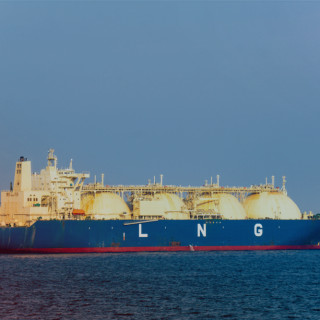
On February 24, Russia started the Ukrainian war. Nothing will be the same again. Russia's brutal attack made the ongoing conflict around energy resources all the more obvious. In 2021 alone Russia could have earned PLN 500 billion (or $120 billion). from the export of energy resources[1]. This revenue funds the Kremlin's military spending. Now we are considering whether giving up Russian fossil fuels is possible. Undoubtedly, this would be a radical solution with far-reaching and not entirely known consequences. If this were to happen, solidarity and close cooperation within the EU would be more important than ever before. In this article, we analyze what options Poland has to break its energy dependence on Russia.
28.2.2022 -
Renewables can reduce fuel imports

Last year the import of gas, oil and coal cost Poland PLN 89 billion. This year, it will be much more - by the end of June it already amounted to PLN 85 billion[1]. The supply crunch and spike in fuel prices have become the source of an economic and energy crisis, and a means of exerting pressure on Europe. Meanwhile, renewables not only reduce emissions and energy prices, but also import dependency on energy resources.
29.11.2022 -
Russian oil disappearing from Europe

In 2021, about a quarter of the oil used in the EU, about €48 billion worth in total, came from Russia. The invasion of Ukraine prompted EU countries to impose sanctions on this commodity. However, the sanctions contain loopholes that have made Poland the EU’s largest importer of Russian oil. While sealing the sanctions regime is possible, electrification of transportation will in the long run safeguard against the risk of replacing dependence on Russia with dependence on other petrostates.
9.2.2023
Events(2)
-
Int-E-Grid: First meeting of the Polish-German Platform on E-mobility
16.6.2020 zoom
The first meeting of the Polish-German Electromobility Platform is behind us. In the Int-E-Grid project we want to find out how to support the promotion of electric cars and keep the National Power System secure.
-
Int-E-Grid | Second meeting of the Polish-German platform on Emobility
27.10.2021 online
How to safely integrate electric cars into an energy system that will turn towards renewable energy production? We will answer this question during the second meeting of the Polish-German Platform on E-mobility within the Int-E-Grid project, which will be held online on Wednesday, 27 October at 10:30 a.m.